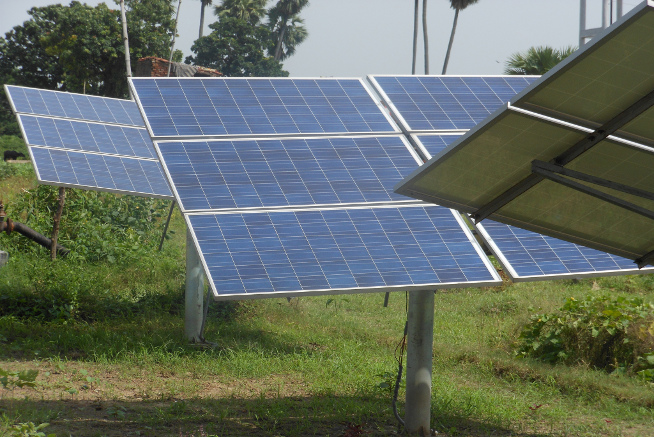The World Bank has said that India’s ambitious solar program is placing it at the forefront of the global fight against climate change.
In a news report issued during the G20 summit in Hamburg, the World Bank said that India’s sweeping commitment to solar power is gradually displacing coal as an energy source in the country, adding that innovative solutions to energy efficiency, financing and deployment of solar were also helping to bring greater energy security to India’s 1.2 billion population.
By making a conscious choice to fuel its economic growth with significantly more clean energy, the World Bank added, India is contributing enormously to global efforts to limit CO2 emissions.
Earlier this year India made the decision to scrap plans for 14 GW of additional coal-fired power plants – chiefly because solar power in the country is now a viable, in-demand and low-cost alternative.
“In India and beyond, solar power is starting to displace coal as an energy source,” the World Bank said. The cost of PV in India is already one quarter of what it was in 2009, with prices poised to fall another 66% by 2040, the report added.
Popular content
However, having seen solar power prices hit record lows in May of below INR 2.44/kWh at the Bhadla Solar Park, some observers believe that prices cannot go too much lower otherwise they run the risk of becoming financially unattractive to developers.
These prices, though, are acting as an incentive for international firms to invest in India’s solar market, said the report. India’s 2022 renewable energy target is 170 GW, of which 100 GW is poised to come from solar. Currently there is just over 14 GW of solar PV capacity installed in India, with the nation on course to add almost that much in 2017 alone.
Data published last week by Mercom Capital Group shows that 1,359.77 MW of solar was tendered in June, and 1.5 GW auctioned. In May, those figures were 2 GW and 755 MW respectively.
This content is protected by copyright and may not be reused. If you want to cooperate with us and would like to reuse some of our content, please contact: editors@pv-magazine.com.


1 comment
By submitting this form you agree to pv magazine using your data for the purposes of publishing your comment.
Your personal data will only be disclosed or otherwise transmitted to third parties for the purposes of spam filtering or if this is necessary for technical maintenance of the website. Any other transfer to third parties will not take place unless this is justified on the basis of applicable data protection regulations or if pv magazine is legally obliged to do so.
You may revoke this consent at any time with effect for the future, in which case your personal data will be deleted immediately. Otherwise, your data will be deleted if pv magazine has processed your request or the purpose of data storage is fulfilled.
Further information on data privacy can be found in our Data Protection Policy.